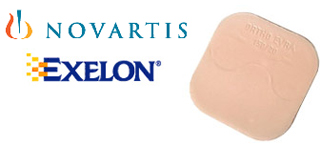
But, Exelon is not new to the medical scene. It has already been available in capsules to treat mild to moderate forms of Alzheimer’s disease and mild to moderate cases of dementia associated with Parkinson’s disease.
In July 2006, researchers reported that putting Exelon in a patch form might help to simplify the drug’s use especially for people who have severe trouble swallowing tablets.
The researchers also felt that a skin patch would reduce nausea and vomiting associated with Exelon’s class of drugs.
Now, according to Novartis, Exelon’s skin patch tremendously reduces the drug’s gastrointestinal side effects.
The Exelon skin Patch is to be applied once daily to the back, chest or upper arm. It also maintains steady blood levels of the drug throughout the day.
Novartis said that the FDA approved the Exelon Patch based on results from an international study that included around 1200 patients with mild to moderate Alzheimer’s disease.
For the study, the patients took Exelon capsules, wore the Exelon Patch or got a placebo treatment.
According to Novartis, “Exelon Patch showed similar efficacy to the highest doses of Exelon capsules and the recommended dose (9.5 milligrams per 24 hours) was generally well tolerated by patients.”
However, Novartis the marker of the Exelon Patch has warned that taking higher-than-recommended doses could be associated with nausea, vomiting, diarrhea, appetite loss and weight loss.
As with the capsule form, the company also recommended that the medicated patch be used with caution in people with a history of so-called “sick sinus syndrome,” ulcers, asthma and other chronic lung diseases, seizures, or urinary obstruction.
